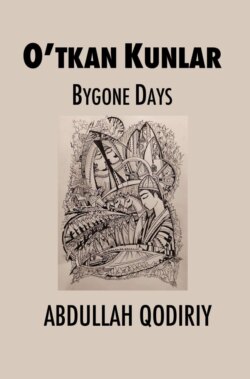Читать книгу O’TKAN KUNLAR - Абдулла Кодирий - Страница 3
На сайте Литреса книга снята с продажи.
FOREWORD TO O’TKAN KUNLAR
ОглавлениеA Universal Melody That Chooses No Time Nor Place
The venerable Uzbek people originally occupied a vast area ranging from Siberia in the north to Turkistan and Afghanistan in the south. It is well documented in historical and literary sources that we engaged for centuries in a cross-fertilization of economic, cultural and scientific knowledge that moved forward the march of humanity. Unfortunately, either through the vicissitudes of time or through human indifference, since the 1920s artificial boundaries have dampened that give-and- take. This is particularly true in the region of Turkistan where barriers between the peoples of Uzbekistan and Afghanistan persist to this day.
And as with our own disjointed and divided lands, I wonder then how to best create closer ties between Uzbekistan and America? Ten centuries ago our countryman Abu Rahan Beruni in his Codex Masudicus exhibited great prescience in discovering the Earth’s circumference, thus theorizing the existence of the Americas: “We propose a land exists beyond our own known world.” One thousand years later we find ourselves arriving full circle from Al Beruni’s prophecy through relations between Uzbekistan and the United States – and in the spirit of his work we should see a literary and cultural exchange.
We Uzbeks especially need to familiarize our own community of creatives engaged in literary endeavors with the full landscape of American literary production – not only well-known writers such as William Faulkner or Langston Hughes, but also contemporary ones such as Margaret Atwood. On their end, I believe that it would not be a great stretch of imagination to add Abdullah Qodiriy to that canon of writers. As you read his novel O’tkan Kunlar, decide for yourselves if our hero Otabek would be as at home on the streets of New York as he was in Tashkent and Margilan. What about the humanitarian spirit of Yusufbek Hajji with his flowing white beard rendering aid to the suffering in Washington, D.C. or in Oxford, Mississippi? Isn’t Uzbek Oyim with her sharp tongue standing as mistress over her domestic domains someone you might know? Or, would it defy credulity to imagine the same strength of spirit in our Uzbek women exhibited through Kumush in your own American cities and small towns?
Those who appear to us in the novel are not just literary constructs solely concerned with Uzbek identity, but also universal symbols imbued with the same spirit of America. We must recognize that those esteemed and beloved characters that form our novel’s narrative also exhibit the same sense of dignity and achievement characteristic of Americans. Our mutual values of what is good and true should persist, forever instilled in each other’s culture. I believe that Mark Reese’s loving translation of Abdullah Qodiriy’s novel O’tkan Kunlar into English has achieved that end.
Literature forms the foundation of a people, of a homeland through its timeless draw upon a universal consciousness. It gives purpose and enlightens the soul through the melody of the human heart. That melody gives form to humanity, if we will only listen. In that thread I believe that if the message of the novel O’tkan Kunlar were to make its way into the hearts and minds of readers in America and around the world, even a small precious sliver, it will become a part of them and lift them up, making content the spirit of my grandfather Abdullah Qodiriy in his place of rest.
With great respect and affection,
Khondamir Qodiry (October, 2019)
